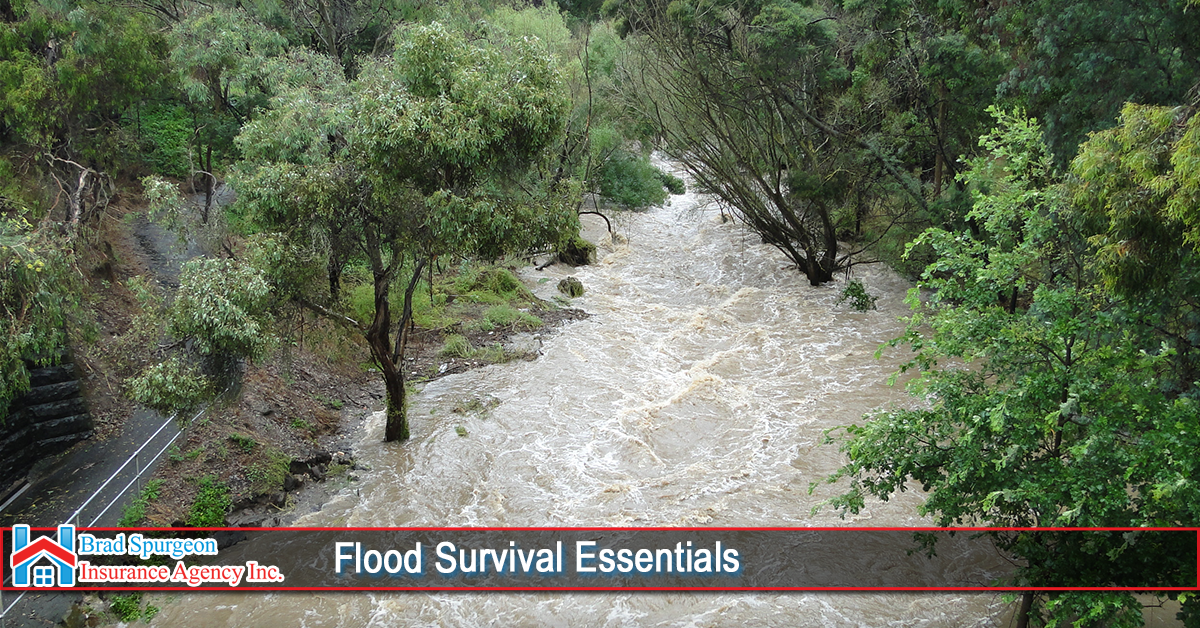Below are the disaster supplies and tips you need to survive a flood.
Drinking Water
It is essential to have clean drinking water during disasters as it could help in body hydration. When flood is imminent, fill clean plastic containers with at least 72-hours’ worth of drinking water (approximately 1 gallon per person). It is significant to note that drinking water is highly recommended as it is safe and is less likely to cause any diseases.
Non-perishable Food
Store at least a 3-day stash of food that does not require refrigeration or cooking like dehydrated foods, canned goods and cereals. Special considerations may apply for family members needing special food like milk formulas for infants and special diet plans for those with health conditions so you must prepare all these things ahead of time as well. As much as possible, have a food supply that does not need a lot of water to prepare them.
Hygienic Measures and Items
Being sanitary and maintaining good hygiene is important to protect you from contracting diseases. Frequent hand washing and hygienic measures are effective ways of deterring infection caused by contaminated flood waters which may cause serious health problems. As far as sanitation is concerned, the following items are helpful especially during disasters: soap, toilet paper, hand wipes or towels, bleach, personal hygiene items and feminine hygiene essentials.
Disaster Supplies
The following tools and supplies are recommended to be pre-packed and be centrally located. It is very important that all family members know its location and purpose thus including it in your disaster plan discussion, as it may help save lives should an emergency situation or any natural disaster happen.
Your disaster tool kit should include but not be limited to: flashlights, extra battery packs, battery-operated radio, wrench, pliers, multipurpose tools, signal flares, propane stove, ABC variety fire extinguisher, manual can opener, duct tape, matches (waterproof), floatation devices, tube tent, survival manual and maps, trash bags, disposable plates, cups and utensils, whistle, compass and most importantly some extra cash.
First Aid Kit
First-aid and medical supplies along with prescribed medications should be made available during disasters thus keeping a supply of these items ahead of time is very important. Items in your first-aid kit should include absorbent dressings, bandages, adhesive tapes, antiseptic solutions and wipes, gloves, scissors, gauze pads, some medications and a first-aid instruction booklet among others.
Pack a Go-Bag
A go-bag or bug out bag is a portable kit packed with essential items needed for survival in the event of emergencies and disasters where you are to evacuate your home for 72 hours or so. If such is the case, a person who kept ready a go-bag ready is much more likely to make it through the 72 hours without much incident.
A go-bag should contain enough supply of food, water, clothing and even shelter that would last at least for three days as it may take 72 hours for disaster and relief management to reach affected people and offer some help. It is also a good practice for disaster safety to have another bug out bag in your car as it may be helpful when you have to evacuate or leave your home at once.
Avoid the following during a flood:
- Wading through flood waters – As mentioned above, flood waters can be contaminated with certain microorganisms and bacteria. Once you are exposed to these germs, there is a great possibility of being infected with illnesses and diseases especially if you have broken or exposed skin.
- Moreover, some objects may become more dangerous as the flood water rises. Things such as sharp objects, fallen electric lines and holes in the ground may cause fatal injuries to people wading through the waters.
- Drinking the flood water – Common microorganisms like E. Coli, Giardia, Toxoplasmosis, Norovirus, and Cryptosporidium and non-edible elements such as traces of metals, leads or fertilizers can be present in flood waters. When these are ingested and absorbed in your system, it can cause serious health problems and even lead to death.
- Driving through flood waters – During heavy rains and flooding, the roadbed may be washed out. You can lose control of your vehicle when driving in flood water as your car may float or be swept away thus posing danger to your safety. Never try to drive through flood waters, even if they don’t look deep at first glance.
Brad Spurgeon Insurance Agency, Inc. specializes in homeowners and flood insurance and provides superior customer service and low rates. Protect your homes now by calling us at (409) 945-4746 or visit our office today. If you have inquiries, send us an email at [email protected]. You may also get a free quote from us by clicking here.

